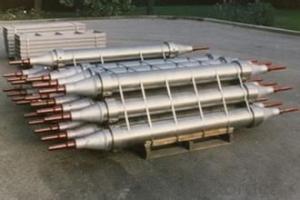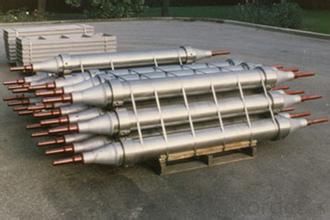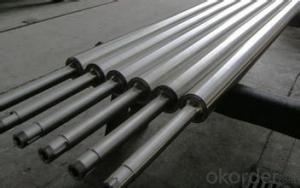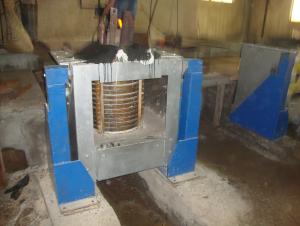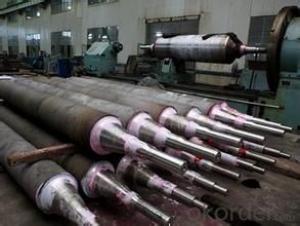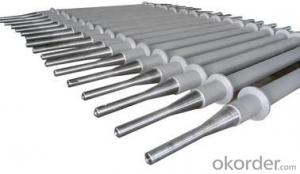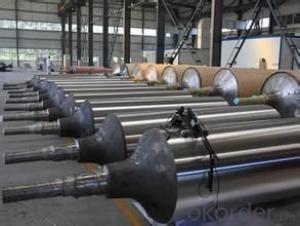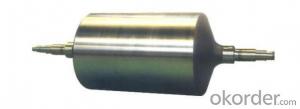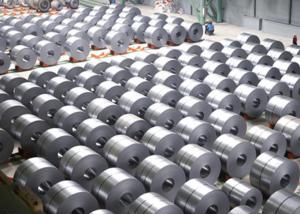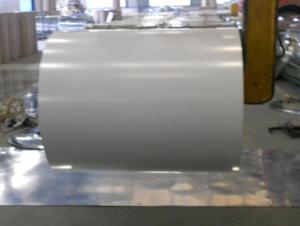Steel Rolling Heating Furnace
- Loading Port:
- Tianjin
- Payment Terms:
- TT OR LC
- Min Order Qty:
- 1000 PCS
- Supply Capability:
- 10000 PCS/month
OKorder Service Pledge
OKorder Financial Service
You Might Also Like
Quick Details
| Condition: | New | Type: | Other | Usage: | Melting Furnace |
| Place of Origin: | China (Mainland) | Brand Name: | Certification: | CE ISO | |
| Warranty: | 12months | After-sales Service Provided: | Engineers available to service machinery overseas |
Packaging & Delivery
| Packaging Detail: | plywood case or nude |
| Delivery Detail: | 30-40days after receiving advanced payments |
Specifications
Steel Rolling Heating Furnace
high efficiency
easy for maintenance
simple operation
Steel Rolling Heating Furnace
Details
Technical parameter
output 15-180t/h
cooling way:evaporative cooling, water-cooling
burning way:recuperative,regenerative
heating steel type:General carbon steel, alloy steel, high carbon mixed steel
Heating way: natural gas, producer gas, blast furnace gas, coke oven gas, convertor gas
- Q: What are the different types of steel sections used in industrial structures?
- Some of the different types of steel sections used in industrial structures include I-beams, H-beams, channels, angles, and plates. These sections are widely used for their strength and load-bearing capabilities, providing structural support in various industrial applications.
- Q: How are steel gratings used in the construction of staircases and platforms?
- Steel gratings are commonly used in the construction of staircases and platforms to provide a sturdy and safe walking surface. They are often installed as treads on staircases, ensuring slip resistance and allowing for the drainage of water or other liquids. Additionally, steel gratings are also used as flooring on platforms, providing a durable surface that can withstand heavy loads and prevent accidents caused by slipping or tripping. Overall, steel gratings play a crucial role in enhancing the structural integrity and safety of staircases and platforms in construction projects.
- Q: What are the different types of steel reinforcing bars?
- There are several different types of steel reinforcing bars, including deformed bars, plain bars, epoxy-coated bars, stainless steel bars, and galvanized bars. Deformed bars have ridges or patterns on their surface to enhance bonding with concrete. Plain bars have a smooth surface and are typically used in low-stress applications. Epoxy-coated bars have a protective layer of epoxy coating to prevent corrosion. Stainless steel bars are resistant to corrosion and are often used in environments with high moisture or chemical exposure. Galvanized bars have a layer of zinc coating for corrosion protection and are commonly used in coastal areas.
- Q: What are the different types of steel profiles and their uses?
- There are various types of steel profiles, including I-beams, H-beams, channels, angles, and tubes. I-beams are commonly used in construction for their strength and load-bearing capabilities. H-beams are similar to I-beams but have thicker flanges, making them suitable for heavy-duty applications. Channels are often used for structural support or as track systems. Angles are commonly used for framing structures or as brackets. Tubes can be used for various purposes, such as pipe fittings or structural components. Each type of steel profile has its own unique uses and applications in different industries.
- Q: What are the different types of steel wire ropes and their uses in mining operations?
- There are various types of steel wire ropes used in mining operations, including galvanized steel wire ropes, stainless steel wire ropes, and compacted steel wire ropes. Galvanized steel wire ropes are commonly used for general purpose applications due to their corrosion resistance. Stainless steel wire ropes are preferred in environments with high humidity and corrosive elements. Compacted steel wire ropes, on the other hand, are known for their increased strength and durability, making them suitable for heavy-duty mining operations. These wire ropes are primarily used for lifting, hauling, and supporting heavy loads in mining activities.
- Q: What are the common types of steel products used in the agricultural industry?
- Some common types of steel products used in the agricultural industry include fencing materials, gates, barn structures, agricultural machinery and equipment, irrigation systems, storage tanks, and trailers.
- Q: How is steel wire galvanized for wire rope applications?
- Steel wire is typically galvanized for wire rope applications through a process called hot-dip galvanizing. In this method, the steel wire is first cleaned to remove any impurities. It is then dipped into a bath of molten zinc, which forms a protective coating on the wire's surface. The wire is then slowly withdrawn from the bath and cooled, resulting in a durable and corrosion-resistant galvanized steel wire that is suitable for wire rope applications.
- Q: How are steel products used in the oil and gas industry?
- Steel products are extensively used in the oil and gas industry due to their durability and strength. They are used in the construction of pipelines, storage tanks, drilling equipment, and offshore platforms. Steel is also used for casing and tubing in oil wells, providing structural support and maintaining the integrity of the wellbore. Additionally, steel products are utilized in the manufacturing of valves, fittings, and various components in the oil and gas infrastructure.
- Q: What are the common uses of steel pipes and tubes?
- Steel pipes and tubes have a wide range of common uses across various industries. They are frequently used for transporting fluids and gases in plumbing, heating, and cooling systems. Additionally, steel pipes and tubes are widely employed in the construction industry for structural purposes, such as supporting buildings, bridges, and infrastructure. Other common applications include oil and gas pipelines, automotive manufacturing, and the production of machinery and equipment.
- Q: How is steel used in the construction of data centers?
- Steel is commonly used in the construction of data centers due to its strength and durability. It is used to frame the building, support the infrastructure, and provide structural stability. Steel beams and columns are used to create the framework of the data center, ensuring the building can withstand heavy equipment and provide a secure environment for the servers. Additionally, steel is used in the construction of server racks and cabinets, providing a robust and secure housing for the servers and networking equipment. Overall, steel is essential in creating a reliable and resilient infrastructure for data centers.
Send your message to us
Steel Rolling Heating Furnace
- Loading Port:
- Tianjin
- Payment Terms:
- TT OR LC
- Min Order Qty:
- 1000 PCS
- Supply Capability:
- 10000 PCS/month
OKorder Service Pledge
OKorder Financial Service
Similar products
Hot products
Hot Searches
Related keywords
